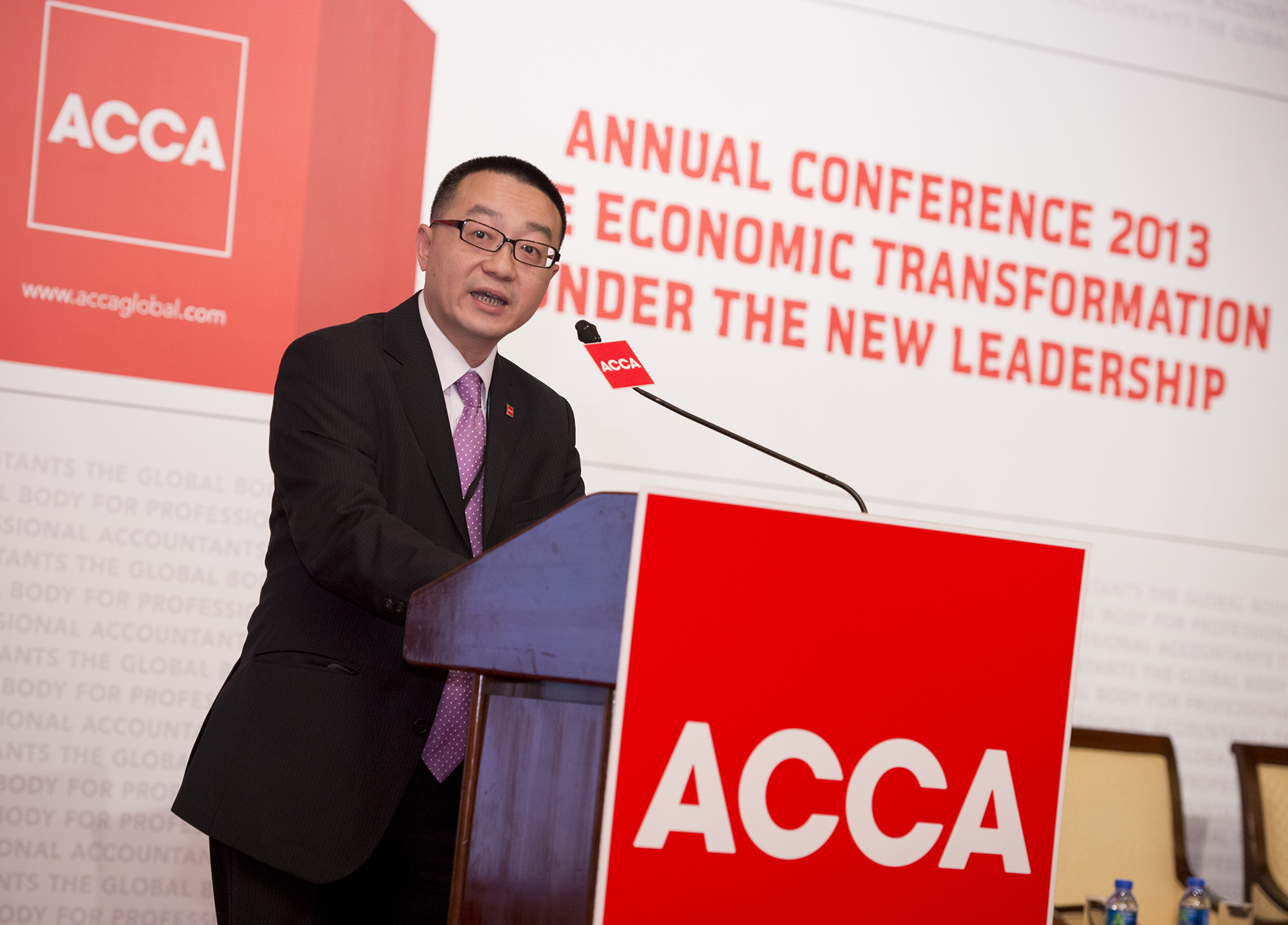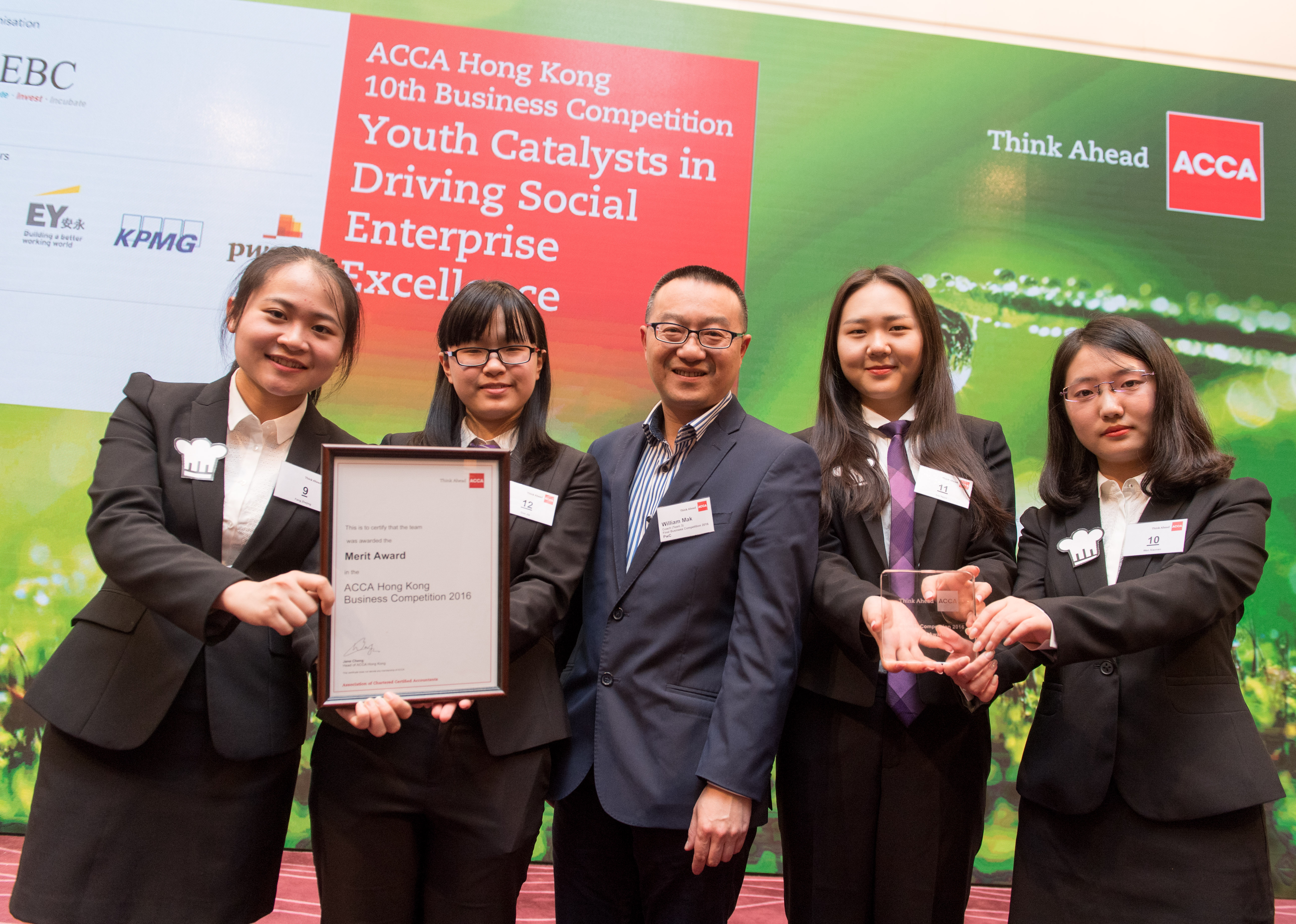William Mak Tze-leung, Partner, Assurance, PricewaterhouseCoopers Hong Kong (PwC), is a recipient of the first CityU College of Business Distinguished Alumni Award. During his 25 years with PwC, Mr Mak has witnessed massive mergers, radical changes in technology, and the advent of automation. Here he tells his story of the worldwide integration of the international accounting community.
The early 1990s was another world. "Connected" people went around with pagers stuffed into their trouser belts. The Nokia 2G mobile phone was still at design stage. And there was a rumour that something called the "World Wide Web" was about to connect us all in a totally new way.
Internationally, the Berlin wall had just come down and the newly unified German economy was dragging. The Soviet Union had collapsed, the UK was entering recession, and the world looked expectantly towards China for signs of economic growth.
In Hong Kong, the Big Six accountancy firms were poised to service the growing China market, and keen to recruit the best students from university campuses. And at the newly established CityU, William Mak was graduating with a degree in Accountancy.
"CityU had just moved from Mong Kok to Kowloon Tong in my second year, and the upgrade from a professional diploma to a degree programme came at the same time, so we were delighted to be graduating with a university degree," says Mak.
Starting out
When he got to Price Waterhouse, the workplace bore little resemblance to a 21st century office.
"Back at the beginning, we used typewriters. There was a typing pool to do the accounts, and the office was full of hard copy filing systems. We would put files on micro fiche every few years, and then destroy the hard copy. You needed a special projector to reclaim the microfiche."
But digital technology was on the horizon. "There were a few computers for the whole division. 10 kg was so called ‘portable'."
The big decision was which country to specialize in.
"Many of my colleagues chose to go overseas for secondment such as the US or the UK. But I was more interested in China. The economy was just beginning to boom, and it seemed there was a big future in accountancy."
At this time, the China State-Owned Enterprises (SOEs) were dominant, and international accountancy firms played a major role in assisting these SOEs to go listing outside mainland China.
"PwC has its history in China back to 1902, but in modern times business only really took off in the late 1980s. Especially from 1992, when the first batch of 9 China SOEs started listing on the Hong Kong Stock Exchange. So, many colleagues travelled to China to work with the younger locally recruited employees. There was a close relationship between the Hong Kong and China firms, and we recruited a large number of employees for the China market."
It may have been a boom time, but it was also very challenging for Mak and his fellow accountants.
"Back then we had very difficult times in China. There were cultural differences; some of us including me had poor Putonghua skills. It wasn't easy."
Collapse
Beyond the introduction of digital technology, a major theme in the accountancy industry has been mergers. At the time Mak started out, the Big Eight of the 1980s had already been whittled down to the Big Six. Then in 1998, Price Waterhouse merged with Coopers & Lybrand to become PwC, and briefly the Big Five reigned. What happened next was beyond the usual story of mergers and acquisitions.
The fall of US energy company Enron in 2001, and the ensuing collapse of Arthur Andersen was a tectonic shift in the accountancy profession. A profession hitherto the by-word for propriety, was mired in scandal, and the era of cozy self-regulation was at an end. New legislation and regulations were implemented to improve financial reporting for public companies which had led to the subversion of auditing standards. In China and Hong Kong, Arthur Andersen's practices merged with PwC in 2002.
Accountability
In the wake of Enron, Mak has seen the profession become much more statutory-based regulated.
"The regulatory paradigm changed after Enron. In the past, it was more self-regulated. Enron was a US case, but the impact was truly global."
The ensuing US Sarbanes-Oxley Act (SOX) of 2002 was designed to protect investors by improving the accuracy and reliability of corporate disclosure.
All companies, according to SOX, had to provide a year-end report about the internal controls they had in place and the effectiveness of those internal controls.
US standards have a big impact globally, not only on the accounting side, but its legislative and regulatory requirements reflect on rule makers in other markets. Mak believes that jurisdictions outside the US found the post-Enron changes relevant to their markets, and that they have brought benefits to both institutional investors and the general public. Hong Kong, didn't follow the US Securities and Exchange Commission standards exactly, but it did follow the overall trend.
"The Big Four are professional services networks in the world, with the US firm usually the largest and most influential member in the network, so the whole network usually tends to move in the same direction on common ground."
Primarily because of US anti-trust legislation, Mak thinks it unlikely that further global mergers are on the cards.
The Sarbanes-Oxley Act addressed Enron's perceived corporate governance failings. From now on, a Public Company Accounting Oversight Board would monitor corporate behaviour and develop standards for the preparation of audit reports. Firewalls were erected: Auditors of public companies would only be able to provide restrictive non-auditing services when auditing. There were provisions for the independence of audit committee members, restrictions on executives being required to sign off on financial reports, and expanded financial disclosure of companies' relationships with unconsolidated entities.
The China market
In the early 2000, the collapse of Enron, and the dotcom bubble burst cast a dark cloud over the US market. Then in 2003 came the outbreak of SARS in Hong Kong. Confidence drained and recruitment to the accountancy firms dropped sharply.
"Accountancy firms recruited far fewer people, and by 2005-6 when the market picked up, we didn't have enough qualified people in the market."
These were the years when China continued to boom. "At the same time, the locally developed China firms – non-big four – were also growing by mergers and by developing their own international network," says Mak. Firms such as Ruihua CPA and BDO Shu Lun Pan CPA, with their international networks nowadays rank within the top four firms in China and compete with PwC for the number one position in the China domestic market.
"The big accelerator was China's entry into the WTO. That led to a convergence of accounting standards, and by 2007 the Chinese accounting standards were substantially converged with international standards. China standards nowadays are in principle very similar, though retaining several special features, and it continues to work towards full convergence with international standards." In that sense, it is accounting with Chinese characteristics.
More recently, all Big Four firms have undergone legal restructuring in China, converting the audit side into Special General Partnerships (SGPs). The China Institute of Certified Public Accountants (CICPA) acts to certify, and ensure that the governance of the firms is consistent with their professional development. Under this structure most accountants need to be locally qualified Chinese nationals.
"The market has changed because of the development of the Hong Kong and China situation. Nowadays, PwC has around 4,000 employees in Hong Kong, but more than 12,000 employees in about 20 offices in mainland China. Unlike the early days, technical support and other resources are all in place."
"The Big Four have a large number of partners in China. And a majority of them are now locally recruited Chinese nationals."
What is a partner?
"This can be a very technical question. In general, partners are those who hold ultimate responsibility for the business of the firm. From an audit practice's point of view, as our services in Hong Kong are practiced under a Hong Kong partnership registered to perform financial statement audits, an ‘audit partner' is therefore one of the partners in the partnership."
This comes with a downside, he says wryly.
"We have to sign ‘PricewaterhouseCoopers' in full on each audit report. That's a lot of signing when hundred sets of accounts are in front of you!"
Giving back
William Mak has successfully coached a College of Business team into the final round of the ACCA Business Competition 2016. How does he contribute?
"We have been going through the career path and journey of life just like many of the students are going to face. If students wish to talk about their difficulties just a few words of advice may help," he says modestly.
And Mak is impressed by the achievements of the current generation.
"Students are getting more and more advanced. In our time, we were not exposed to global influences. Current students know much more than we did. We were very restricted, we learned news from the TV once a day. They are much more up-to-speed."
Automation
How fast are people in the accountancy industry being displaced by technology?
"Automation may bite after the next five years. But we are not yet at the stage of automating everything, especially in audit. We are trying to develop tools inhouse for global roll-out to improve audit efficiency."
"We are tailor-making software, with new technology to cover areas like data-analytics. This will improve efficiency, and use less manpower. It means junior staff will do more value-added work. Hopefully, they will become more motivated and focused on the audit."
So where does the human factor come in?
"Judgement is the core value of an auditor. We need to follow a set of auditing standards, and everything needs to comply with the standards. This gives trust to the public."
"Technology advancement allows us to focus on more risky areas and be able to provide more insight on business operations from the information obtained. It can improve efficiency and add value, but effective and ongoing communication with clients is still of the utmost importance in our business as service providers."
DeepMind gets ever deeper. Does AlphaGo and the defeat of the world's best human Go game player spell the end for the accountancy profession?
"We will always need judgement, if only to judge the role of IT in the accountancy profession! However, I believe one day artificial intelligence type technology will benefit the profession by providing more instant and comprehensive information for us to make judgements that are more effective and supportable."
Recruitment
So, what about employment prospects? Mak sees no big changes in the near term.
"Our recruitment plan is drawn on a long term, and on a moving average basis, in order to meet the expected market development. We believe the use of technology will help to better serve our clients and at the same time allow our people to gain better working and learning experience, not only work more effectively but focus on add-value tasks."
The future looks secure for accountancy graduates, at least for the time being!
Top 10 Chinese Accounting firms in 2016
- PricewaterhouseCoopers Zhong Tian CPA
- Ruihua CPA
- Deloitte Touche Tohmatsu Huayong CPA
- BDO China Shu Lun Pan CPAs
- Ernst & Young Hua Ming CPA
- KPMG Huazhen CPA
- Pan-China CPA
- ShineWing CPA
- Baker Tilly China
- Da Hua CPA


